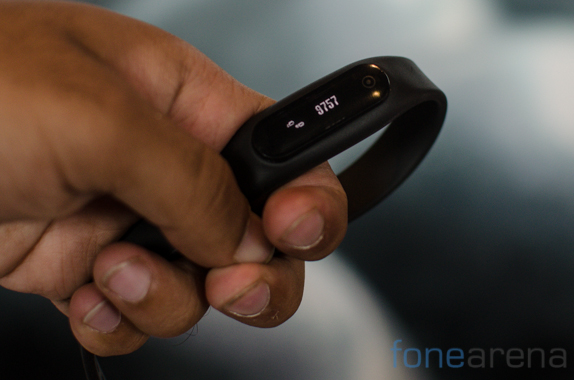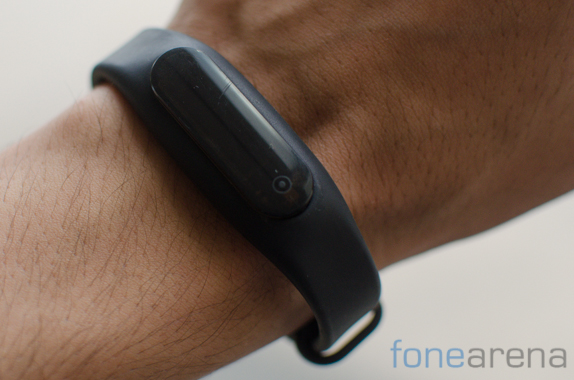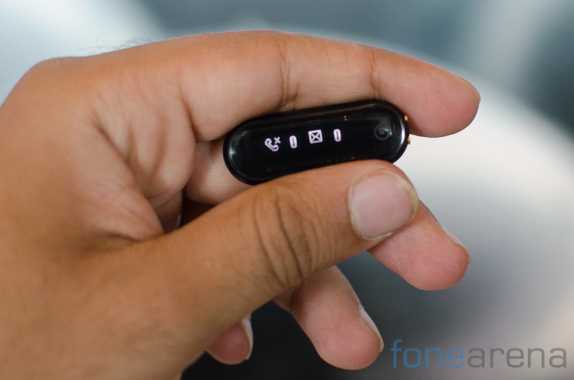

There’s a new contender in town to take over the crown of the most affordable fitness tracker and the YuFit certainly seems to be taking aim straight at the current crowd favorite, the Xiaomi MiBand. We spent some time with the activity tracker to get an idea if the band is genuinely competitive or yet another gimmick.
httpv://www.youtube.com/watch?v=m2EpuMzn9Rc
The basic idea remains the same as most others. The band employs a small sensor module that sits inside a rubberized band and measures your daily activities. A combination of basic motion sensors and smart connectivity is what makes the fitness band special. The YuFit is no exception with a predominantly plastic center unit being holstered within a silicon band. On that note, the fit and comfort levels are strictly adequate. The band is comfortable enough but the quality makes us worry how well it will stand up to months of daily rubbing against objects, dings and usage in general.


On the topic of build quality, Xiaomi managed to build a metal sensor because it did not implement a display. The trade off is important to note as the YuFit has employed a translucent polycarbonate shell on top of the OLED screen. Plastic gets scratched and even in the demo unit, we noticed no dearth of scratches. Some light, some very deep. Adding to the trouble is the fact that the display of the module isn’t recessed or even flush with the band, it in fact stands out from the band making it all the more prone to scratches. We have serious concerns about how well the sensor module will hold up in the long run.


In the company’s defence, they had to make the tradeoff in favor of a display module and at least on paper you are getting a lot more bang for your buck than the competition. Hold up the sensor though and you can’t help but feel a bit disappointed. The display is practically useless in sunlight where it is most likely to be used. The aforementioned scratches tend to make it a bit hard to view and the capacitive button to activate the screen doesn’t really work every time. Sure, the display allows you to see missed call and message notifications but what use is it if you can’t see it outdoors? Additionally, you aren’t really getting rich notifications here. A basic counter of messages and missed calls isn’t really worth the trade off in quality that you are getting here in our opinion.
The charging mechanism of the band requires a separate dongle. Avoiding microUSB allows the module to be water resistent to a degree as there are no open ports here. Owing to the presence of a display, we don’t expect battery life to be more than a couple of days. We’ll test that out over the course of our review though.
It is quite impossible to test out the fitness tracking capabilities of the band during a brief hands on so you’ll have to wait for the review on that front. That said, we expect the YuFit to fall right in line with the industry standard of accuracy since the sensors being used are quite standardized. At the core of it, the module is just a connected pedometer and it is hard to go wrong with one of those.
The YuFit is priced at Rs. 999 and at least on paper, it seems to bring basic smartwatch and fitness band functionality to the table. Clearly compromises have been made in quality to enable that. We feel that the company should have focussed on the fitness functionality and dropped the display instead of the half hearted attempt at integrating notifications and compromised quality of the hardware. The software component of the band remains to be seen but for the moment, the MiBand still appears to be the superior product when it comes to low cost fitness bands.
